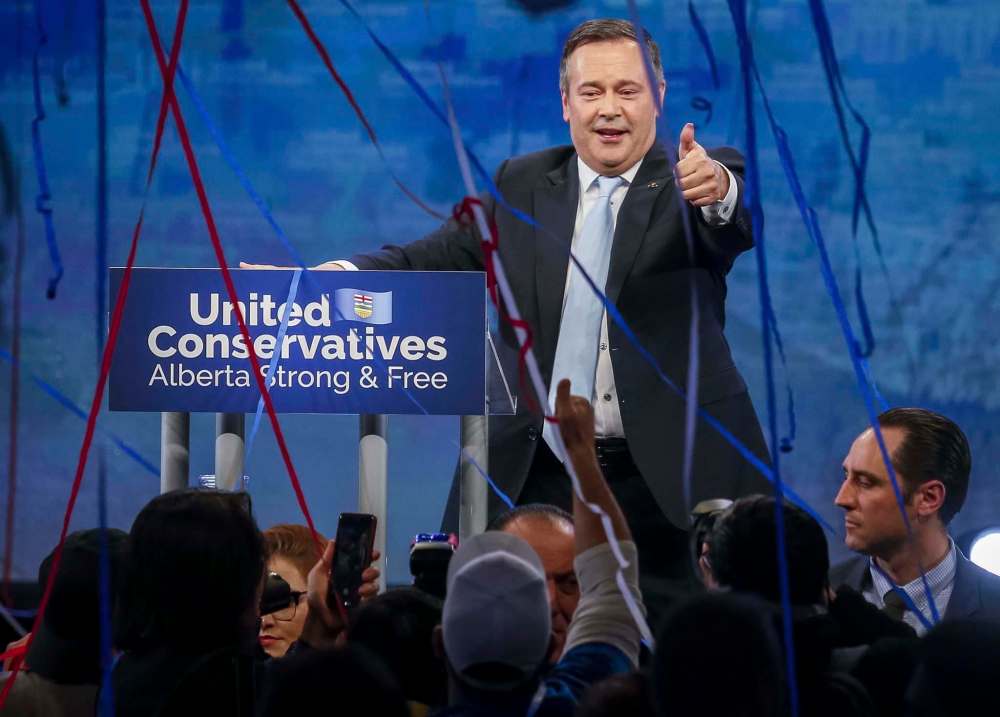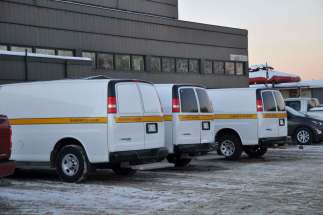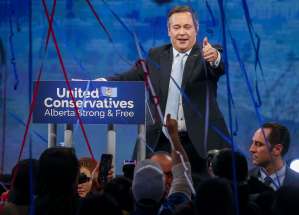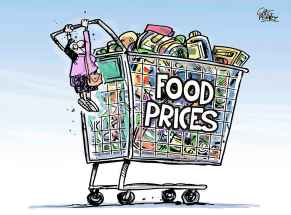Election rhetoric not a blueprint for governing
Read this article for free:
or
Already have an account? Log in here »
To continue reading, please subscribe:
Monthly Digital Subscription
$0 for the first 4 weeks*
- Enjoy unlimited reading on winnipegfreepress.com
- Read the E-Edition, our digital replica newspaper
- Access News Break, our award-winning app
- Play interactive puzzles
*No charge for 4 weeks then price increases to the regular rate of $19.00 plus GST every four weeks. Offer available to new and qualified returning subscribers only. Cancel any time.
Monthly Digital Subscription
$4.75/week*
- Enjoy unlimited reading on winnipegfreepress.com
- Read the E-Edition, our digital replica newspaper
- Access News Break, our award-winning app
- Play interactive puzzles
*Billed as $19 plus GST every four weeks. Cancel any time.
To continue reading, please subscribe:
Add Free Press access to your Brandon Sun subscription for only an additional
$1 for the first 4 weeks*
*Your next subscription payment will increase by $1.00 and you will be charged $16.99 plus GST for four weeks. After four weeks, your payment will increase to $23.99 plus GST every four weeks.
Read unlimited articles for free today:
or
Already have an account? Log in here »
Hey there, time traveller!
This article was published 22/04/2019 (2423 days ago), so information in it may no longer be current.
Railing against Ottawa, which is a tried and true method for provincial election campaigns, appeared to work for premier-designate Jason Kenney and his United Conservative Party in Alberta. The UCP won 55 per cent of the vote and 63 legislature seats in the April 16 election with a 71 per cent voter turnout, ending the government of Rachel Notley’s New Democratic Party.
Mr. Kenney won also because he was able to unite Alberta’s divided right-wing political factions and to overwhelm the right-wing splinter groups that remained outside his UCP. He was helped also by low prices for Alberta oil, weak oil industry employment and long delays in construction of pipelines to bring Alberta oil to overseas customers.

Mr. Kenney won applause during the campaign by accusing Prime Minister Justin Trudeau of blocking construction of oil pipelines and imposing a carbon tax to curb greenhouse gas emissions. He complained of a Notley-Trudeau alliance aimed at undercutting Alberta’s oil industry.
But railing against Ottawa is a method of campaigning, not a method of government. Now that he has won power, Mr. Kenney will have to find solutions to Alberta’s problems beyond blaming it all on Justin Trudeau.
A quick fix to Alberta’s weakened labour market may be achieved through Mr. Kenney’s promised cut in the corporate tax rate. His party is targeting mobile employers in high-tech industries and financial services, which can operate more or less anywhere. He hopes to lure them to relocate to Alberta.
But mobile employers can move out just as easily as they move in. Part of Alberta’s employment problem is that university-age people formerly took high-paying oil industry jobs rather than finish a university degree. In a period of oil-industry recession, they lack the qualifications for high-tech or financial services work.
The harder part of Alberta economic diversification will be to wean the labour force and the government itself off reliance on the oil industry as a never-fail source of employment and tax revenue. Every government of Alberta for the past half-century has recognized a need to diversify the provincial economy, but oil jobs and oil revenue have been so abundant and so easily available — most of the time — that diversification never happens. That is not Justin Trudeau’s doing, nor Stephen Harper’s nor Rachel Notley’s. It is the inexorable logic of abundant oil reserves.

Having purchased the Trans Mountain pipeline and its expansion project from the Kinder Morgan pipeline company, the federal government is now a huge player in Alberta’s oil industry. Mr. Kenney is going to have to co-operate with the masters of the Trans Mountain project and win the support, or at least the benevolent neutrality, of the British Columbia government and the Indigenous communities along the pipeline route.
His idle talk of turning off the taps to deny oil supplies to consumers in B.C. apparently sounded good as campaign rhetoric, but that was just claptrap to fire up a crowd, not a way to expand Alberta’s oil exports.
The Trans Mountain expansion project will work best as a joint project of Alberta, which has the oil; B.C., which has the ocean ports; Indigenous communities, whose land, culture and livelihoods will be affected by the project; and the federal government, which has the existing pipeline and the expansion route. Mr. Kenney should forget the rage and the rhetoric, forge a relationship with the partners he is given and focus on results.









